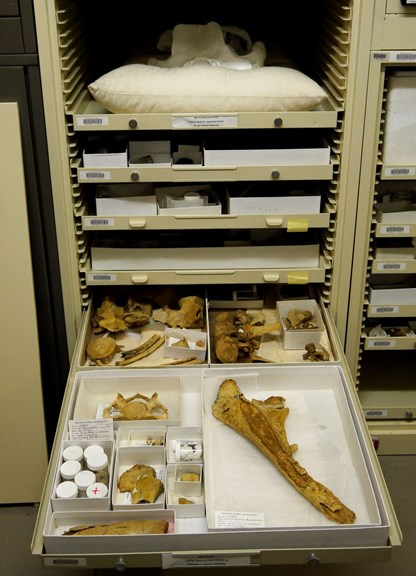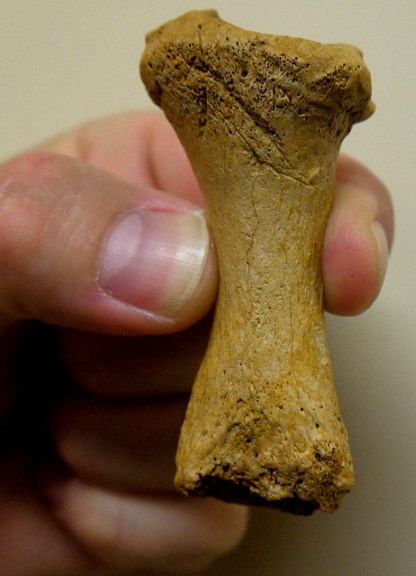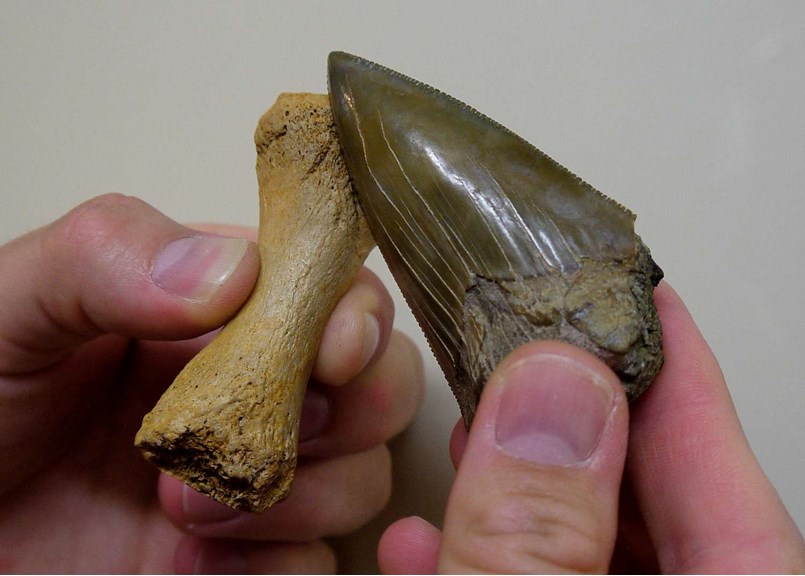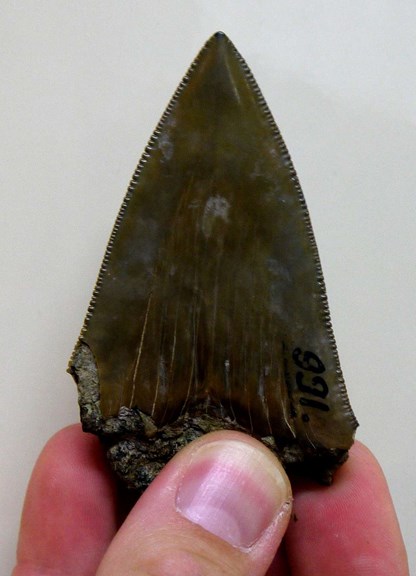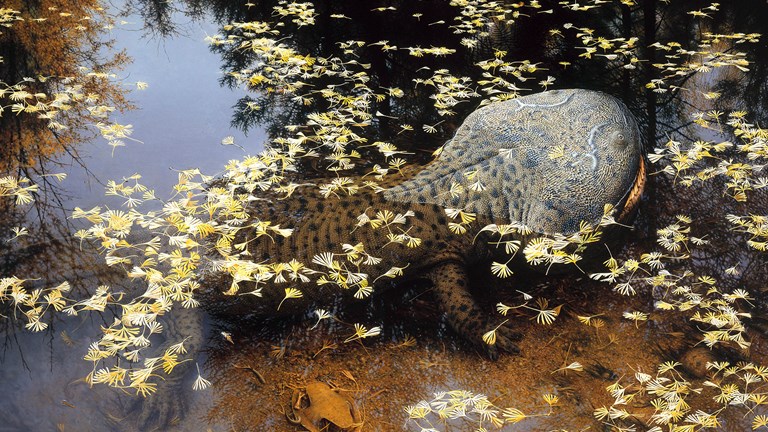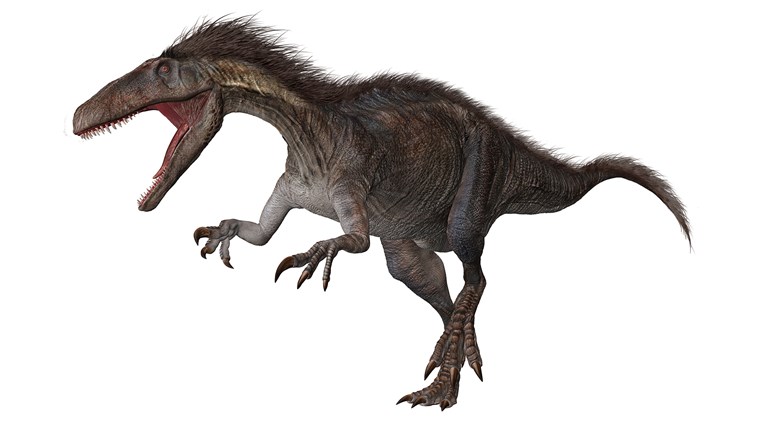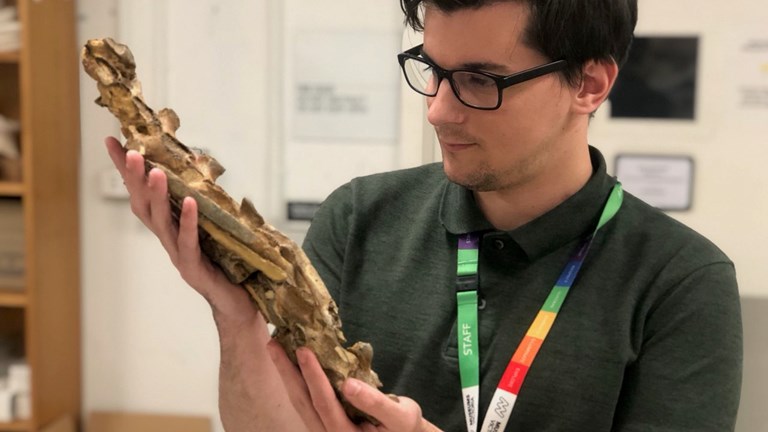Whale vs shark
This cabinet contains parts of the skeleton of a fossil whale collected at Bells Beach, on the Surf Coast southwest of Melbourne.
This story is only indirectly about that whale, but it does start with one of its bones:
This is a metacarpal – a bone from one of the whale's flippers (forelimbs). Here, it's being held by Dr Erich Fitzgerald, our Senior Curator of Vertebrate Palaeontology, which gives you an idea of the size – it's about 7cm long. The equivalent bone in a human hand (the bone that runs between your middle finger and your wrist) is about the same length, though not as chunky.
At the top of the bone, you can see two grooves that make an inverted 'V'. While they might not look particularly impressive, to Erich's eye that chevron shape was an immediate clue to something that's quite rare to find in the fossil record: it's a classic example of the marks left on bone by shark teeth. We know what a modern shark bite looks like from observing modern sharks and their prey, and the marks on this bone look just like the sorts of marks a modern shark bite makes. In the next photo, Erich is re-enacting the way a shark's tooth would make this sort of mark, (though obviously when a shark bites there are many more teeth involved).
While it's not absolutely conclusive evidence – this sort of palaeo-behaviour trace fossil rarely is – this, and other marks on other bones from the same specimen, is enough for us to be fairly certain that this whale was bitten by a shark. We also know that this happened very close to the whale's death because the bone shows no sign of healing. This tells us that either the whale was killed by the shark that attacked it or that the shark was scavenging the whale carcass after it died – we can't be sure which but we know that the whale wasn't bitten and then got away.
Even with this uncertainty, though, this is more information than palaeontologists usually have about interactions between animals in the fossil record. Information modern ecologists take for granted, such as who's eating who, is extremely rare to find for fossils. Bite marks like these are one of the few ways palaeontologists have any idea of how food webs may have been constructed way back when. But what's really cool about this particular whale/shark palaeo-interaction, is that rather than just being satisfied with 'this whale was attacked by a shark' we can actually figure out who the culprit was. A lot of work has been done on the geological unit that this specimen was collected from so we know what was sharing the waters with our luckless whale. Of the list of sharks known from the same unit, only one has teeth big enough to have made these marks:
This tooth comes from the shark Carcharocles angustidens, known from relatively abundant fossils around the stretch of coast our whale was collected from. C. angustidens is a close relative of the rather more famous Carcharocles megalodon which has the largest teeth of any known shark, living or extinct (some are over 18cm long!) You can see the sharp little serrations along the edge of the tooth which would have effectively sawed into the bone of its victim, leaving the grooves we see in the whale's bones today.
So we think that somewhere in the Late Oligocene, 24-27 million years ago, in a sea that covered what is now part of Victoria, a shark, Carcharocles angustidens, bit a Mammalodon whale and perhaps even killed it. It's amazing what we can infer from just a few scratches on bone.
